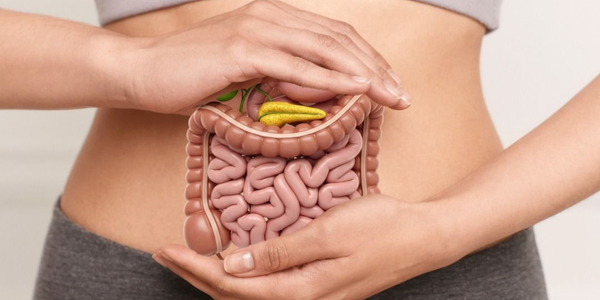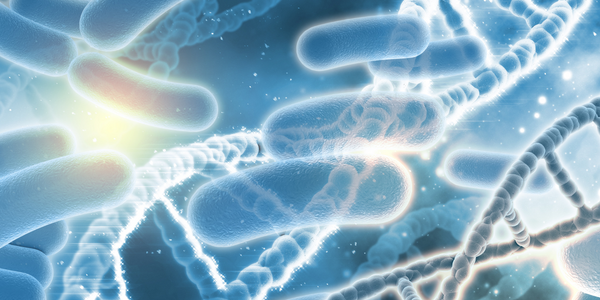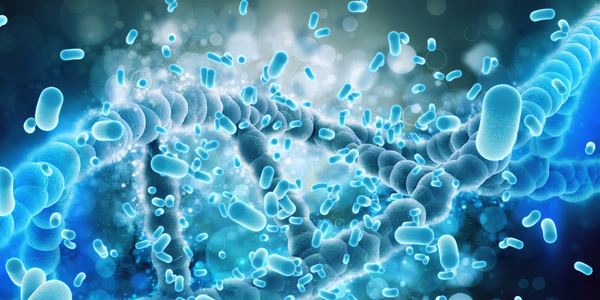The sign of a healthy body is a healthy gut. The intestine consists of several microscopic living things known as microbes, referred to as the gut microbiome, which is extremely crucial for your overall health and wellbeing. Your gut microbiome, which aids in digestion and in improving the immune system, among other things, diversifies with age. A higher microbiome diversity containing different types of microbial species is considered good for your digestive system and health. However, any imbalance in the gut microbiome could result in you developing various health conditions including unhealthy gut.
Signs of unhealthy gut
Whenever one experiences skin problems, depression, anxiety, sleeplessness, hair fall, and the like, one question one must definitely ask ourselves is, ‘Is my gut healthy?’ There are several ways to spot the signs of an unhealthy gut. Let us look at some of the symptoms of an unhealthy gut in greater detail below.
Autoimmune health conditions
If your gut is unhealthy, it could affect the immune system's functioning, causing the body to attack itself. Some studies suggest that an unhealthy gut is likely to increase inflammation in the body and impact the proper functioning of the immune system. Some of the most common types of autoimmune diseases are rheumatoid arthritis, multiple sclerosis, lupus, pernicious anemia and more.

Stomach problems:
The most common and obvious symptom of an unhealthy gut is an upset stomach. Constipation, bloating, gas, acidity, diarrhea, and heartburn are all signs of an unhealthy gut. If your gut is healthy, it will process food and eliminate waste without any trouble.

Weight alterations:
if you find yourself losing or gaining weight without making any changes to your diet or physical activity, it’s definitely a sign of an unhealthy gut. Your body’s ability to absorb nutrients, store fat, and regulate blood sugar could be badly affected if your gut is imbalanced. Weight gain could occur due to a lack of proper nutrient absorption or conditions like insulin resistance. On the contrary, an overgrowth of bacteria in your small intestine could cause weight loss.
Skin issues:
An imbalanced gut could also result in several skin problems like eczema. If your gut is harmed due to poor diet, food allergies, etc., it affects your intestinal barrier's integrity and can cause what many refer to as a ‘leaky gut.’ A leaky gut condition causes unwanted particles and toxins to pass through the intestinal lining into the bloodstream, which affects the immune system and causes inflammation in the body. This then badly affects skin health, causing conditions like acne, eczema, among other things.

Disturbances in sleep:
According to research, our appetite, sleep, and moods are regulated by a neurotransmitter in the brain known as serotonin, 95% of which is created in our gastrointestinal tract. Lack of sleep can cause a feeling of perpetual tiredness.
This demonstrates how a sound and healthy digestive system can positively impact your sleep, mood, and emotions.
It is thus good to check your gut health from time to time If you have any of the aforementioned symptoms of an unhealthy gut, consider them as signs.
The ideal way to restore balance in your gut is by changing your diet. To maintain a healthy gut flora, avoid processed, highly fatty, or rich-in-sugar foods, as these can cause an imbalance of good and bad bacteria in the gut. Substitute these with high-fibrous foods such as vegetables, fruits, legumes, pulses, etc.
Other ways of maintaining a healthy gut are exercising daily, managing stress, drinking plenty of water, and the like. In case of prolonged gut problems, it’s advisable to consult a doctor and investigate the underlying cause to avoid further complications.
You can also try Wellbeing Nutrition’s Clinically Approved combination of Probiotic strains + Prebiotic fibre that promotes digestive balance with a blend of 6 Active Probiotic cultures and Clinically Studied Prebiotic Fibre – Apple Pomace and Chicory root (Inulin) for complete Gut Health.
Reference
- Nutritional psychiatry: Your brain on food (https://www.health.harvard.edu/blog/nutritional-psychiatry-your-brain-on-food-201511168626)
- Salem I, Ramser A, Isham N, Ghannoum MA. The Gut Microbiome as a Major Regulator of the Gut-Skin Axis. Front Microbiol. 2018;9:1459. Published 2018 Jul 10. doi:10.3389/fmicb.2018.01459 (https://www.ncbi.nlm.nih.gov/pmc/articles/PMC6048199/)
- John GK, Wang L, Nanavati J, Twose C, Singh R, Mullin G. Dietary Alteration of the Gut Microbiome and Its Impact on Weight and Fat Mass: A Systematic Review and Meta-Analysis. Genes (Basel). 2018;9(3):167. Published 2018 Mar 16. doi:10.3390/genes9030167 (https://www.ncbi.nlm.nih.gov/pmc/articles/PMC5867888/)
- Zhang YJ, Li S, Gan RY, Zhou T, Xu DP, Li HB. Impacts of gut bacteria on human health and diseases. Int J Mol Sci. 2015;16(4):7493-7519. Published 2015 Apr 2. doi:10.3390/ijms16047493 (https://www.ncbi.nlm.nih.gov/pmc/articles/PMC4425030/)
- Brown K, DeCoffe D, Molcan E, Gibson DL. Diet-induced dysbiosis of the intestinal microbiota and the effects on immunity and disease [published correction appears in Nutrients. 2012 Oct;4(11)1552-3]. Nutrients. 2012;4(8):1095-1119. doi:10.3390/nu4081095 (https://www.ncbi.nlm.nih.gov/pmc/articles/PMC3448089/)
- Succession of microbial consortia in the developing infant gut microbiome (https://pubmed.ncbi.nlm.nih.gov/20668239/)





























Leave a comment